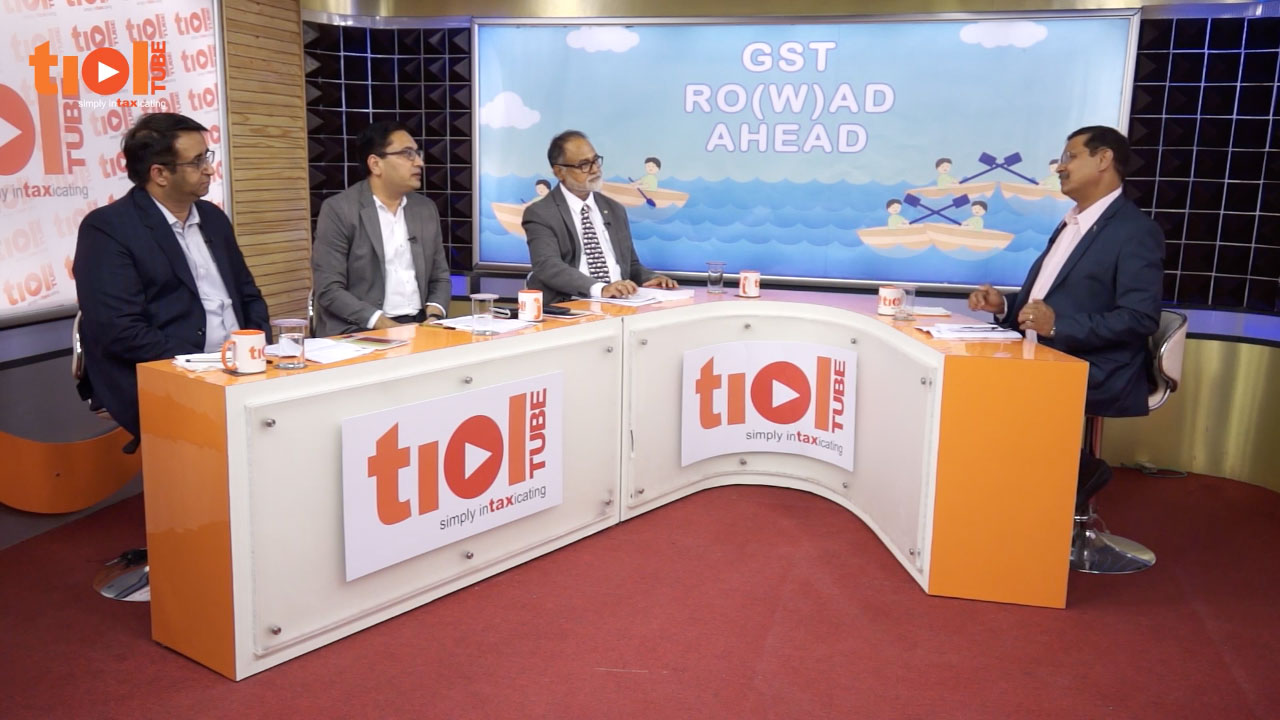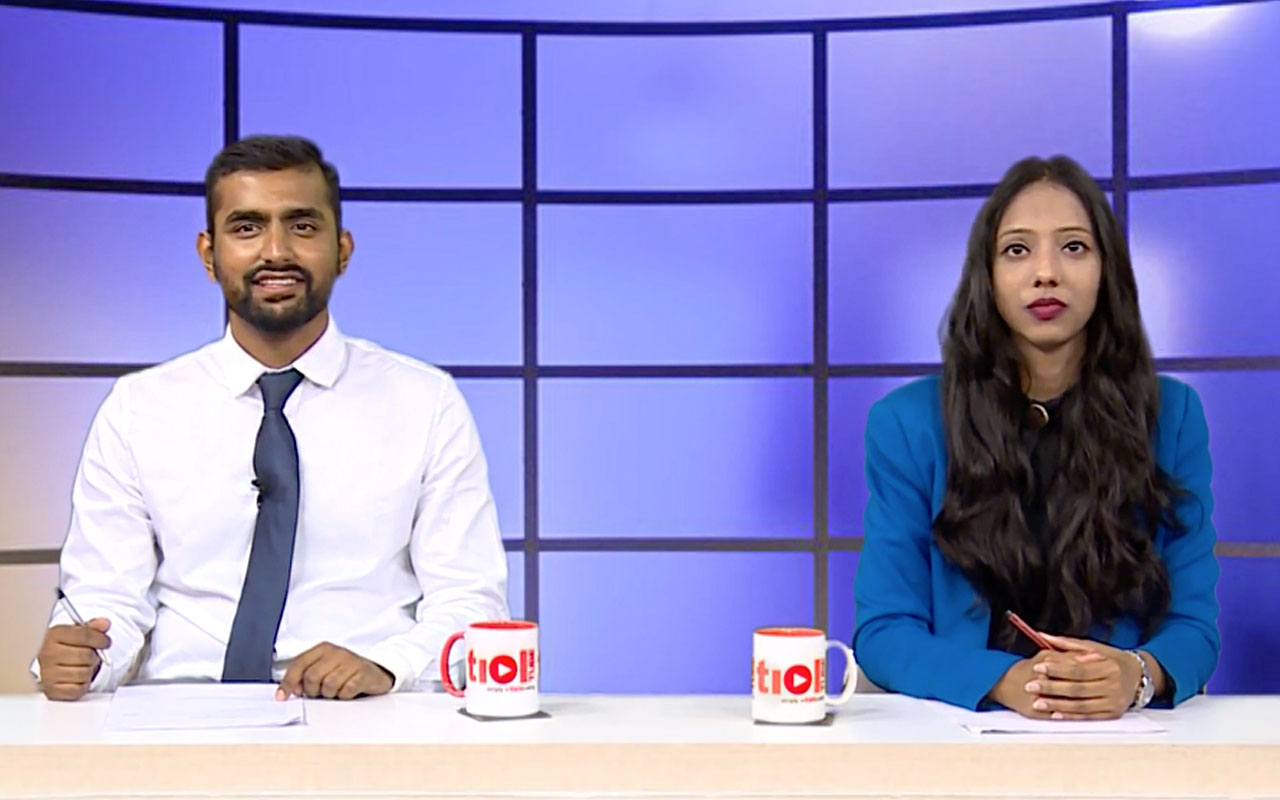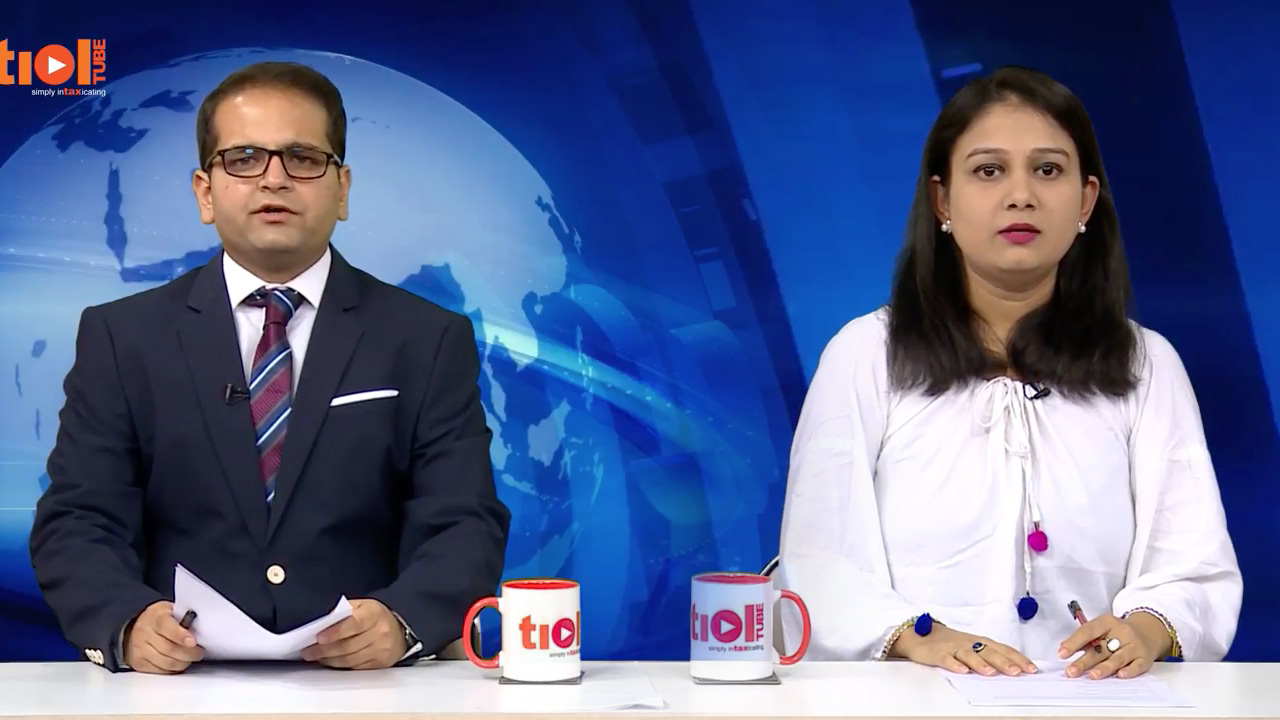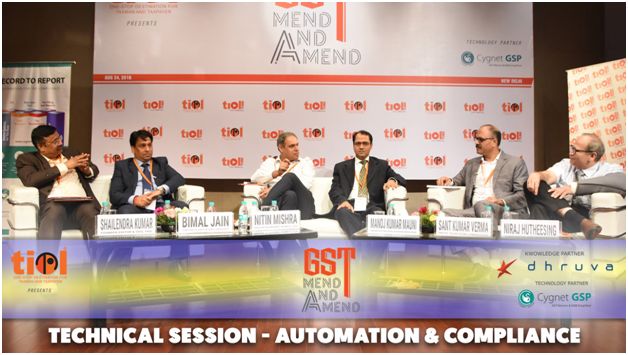SERVICE TAX
2018-TIOL-3108-CESTAT-HYD
V Prabhakar Reddy Vs CCCE & ST
ST - Assessee during the period April, 2006 to September, 2007 was alleged to have availed ineligible CENVAT credit of Central Excise Duty paid on motor vehicles i.e., tippers under the understanding that they are eligible for such CENVAT credit as these tippers were used for rendering taxable output services - Entire issue is regarding availment of CENVAT credit on tippers and on capital goods - As regards the demand of an amount of Rs.1,83,35,538/- of availment of CENVAT credit on tippers, during period April, 2006 to September, 2006, the ST-3 returns for period April, 2006 to September, 2006 is in time i.e., by 5th October, 2006 and a SCN issued on 17.03.2008 by lower authorities, is definitely hit by limitation as there is no suppression, mis-statement of facts with an intention to evade duty, while declaring that they availed the CENVAT credit of Central Excise Duty paid on tippers, compressors and other machineries of motor vehicles - The demand is set aside as hit by limitation - As regards the demands raised for CENVAT credit of Rs.3,28,80,899/- as ineligible CENVAT credit of Central Excise Duty paid on tippers and compressors, the Tribunal in case of Ganta Ramanaiah Naidu 2010-TIOL-213-CESTAT-BANG has specifically held that CENVAT credit on such motor vehicles is excluded from the benefit of CENVAT credit as capital goods - Tribunal have no reason to deviate from such a view already taken - In view of this, the demand for period October, 2006 to March, 2007 is upheld - As regards the demand of Rs.1,96,33,250/-, adjudicating authority as well as SCN is denying the CENVAT credit on capital goods for entire amount as being 100% of duty paid - It is the case of Revenue that the items on which CENVAT credit was availed were not capital goods - The assessee had not availed entire CENVAT credit during the period in question - Hence, demanding and confirming the entire amount seems to be incorrect and since this particular plea of assessee, that they are eligible for 50% of CENVAT credit and balance 50% subsequently is not dealt with by the adjudicating authority in impugned order and has combined the demands for the tippers and other capital goods, matter remitted to the adjudicating authority to reconsider the issue afresh.
Interest liability arises on the amount confirmed and upheld by the Tribunal - Since the entire issue is regarding interpretation of eligibility to avail CENVAT credit on tippers which are used for rendering output services, assessee could be under bona fide belief that they are eligible to avail CENVAT credit - Hence, the penalties imposed on assessee are unwarranted - Adjudicating authority is directed to consider this aspect when he reconsiders the issue as regarding CENVAT credit on capital goods which is remitted back to him: CESTAT
- Appeal partly allowed: HYDERABAD CESTAT
2018-TIOL-3107-CESTAT-ALL
Wave Infratech Pvt Ltd Vs CCE & ST
ST - Demand stands raised against assessee on the allegation that they have used common Cenvatable input service for dutiable as also for exempted output services - However, the adjudicating authority has nowhere clarifies as to how the sale of eatables, exhibition of movies or parking charges are exempted services - There is nothing in impugned order of Commissioner as to under which category the said services fall and as to under which category the same are taxable - If the services are not classifiable under any of the categories and or otherwise not taxable, the provisions of Rule 6 (3) would not apply - As such, there was no legal obligation on the part of assessee to either reverse the proportionate credit or to pay in terms of provisions of law @ 8%/6% of the value of said services - Apart from holding in favour of assessee on merits, it is also found that demand is barred by limitation - Admittedly, the SCN stands raised by invoking the longer period of limitation - The revenue has not produced any evidence to reflect upon the assessee's malafide or to show that such reversal, nonpayment was on account of any suppression or misstatement - The only reason adopted by adjudicating authority is that the assessee did not seek any clarification from the revenue - Otherwise also assessee was maintaining proper accounts and was reflecting everything in statutory accounts books - As such on merits as also on limitation, confirmation of demand of Rs.2,12,77,262/- along with confirmation of interest and penalties imposed upon the assessee is set aside: CESTAT
- Appeal allowed: ALLAHABAD CESTAT
CENTRAL EXCISE
2018-TIOL-3106-CESTAT-BANG
Rajhans Enterprises Vs Commissioner of Central Tax
CX - The assessee are engaged in the manufacture of excisable goods viz. printed cartons - During investigation, the Department seized several records from the premises of assessee as well as C & F agent - Certain documents mentioned the name of the aseessee were found, they had received amounts on day-to-day basis, out of the funds generated by sale of unaccounted Gutkha - Duty demand was raised - On adjudication, the lower authorities confirmed the demand & imposed personal penalty on managing partner - However, the Commr. (A) dropped the demand & deleted the penalty but upheld the personal penalty under Rule 26 of CER - A joint appeal is permissible by the firm as well as the Partner because under Law a Partnership Firm is not a separate legal entity as in the case of Company under the Companies Act - It is a settled principle that partnership firm cannot have separate existence without its partners - This follows from the cases of Benu Ramesh Agarwal vs. CCE & Universal Automobile & Ancilliary Ltd. vs. CCE, therefore on this ground alone that the Managing Partner has not preferred a separate appeal the penalty becomes ill-legitimate - Hence, the order challenged is set aside: CESTAT (Para 2, 6, 7)
- Appeals Allowed: BANGALORE CESTAT
2018-TIOL-3105-CESTAT-MUM
Smita Steel Rolling Mills Pvt Ltd Vs CCE
CX - Appellant manufactures goods on own basis as well as on job work and avails CENVAT credit of duty paid on inputs and capital goods - Revenue view is that since the job worked goods did not suffer any duty since cleared in terms of exemption notification 214/86-CE, the appellant was liable to pay amount as per rule 6(3) of CCR, 2004 - appeal to CESTAT.
Held: Commissioner(A) proceeded against the appellant on the ground that the goods manufactured on job work basis are not the final products of the appellant - since such observations recorded in the impugned order were not the subject matter of dispute in the SCN, seeking for denial of CENVAT credit, impugned order has been passed entirely on a new ground and which cannot stand judicial scrutiny - order set aside and appeal allowed: CESTAT [para 6, 7]
- Appeal allowed: MUMBAI CESTAT
2018-TIOL-3104-CESTAT-HYD
Vijay Prestressed Products Pvt Ltd Vs CCT
CX - The assessee is manufacturer of concrete railway sleepers under an agreement with Indian Railways - The agreement, inter alia, provides for a price variation of sleepers subsequent to removal of goods from the factory - Price variation is as per formula given in the agreement - Whenever the assessee removed goods from the factory, he paid duty as per provisional price - After the final price is known, they in turn pay differential duty if prices are enhanced - The price has actually been reduced in terms of contract - Therefore they filed refund claims for excess duty paid - These refund claims were rejected by lower authorities relying on the case law of MRF Ltd. 2002-TIOL-257-SC-CX-LB - The clearances were done as per the new section 4 of Central Excise Act - In each of those clearances, the invoice price is known – provisional at the time of clearance and final after the price is adjusted - The assessee could have opted for provisional assessment but he did not do so - Nevertheless, once the goods' transaction price is revised upwards or downwards for each clearance, the duty has to be paid accordingly - Wherever there was an upward revision in price, assessee has been paying differential duty and when there is a revision in price, he will be entitled to refund provided it is within the time limit prescribed under Sec.11B - If assessee had opted for provisional assessment he could have claimed refund within one year from finalization of provisional assessment but in this case he has claimed the refund within one year from the date of clearance of goods since the assessments were not provisional - The ratio of case of Oriental Explosives 2007-TIOL-765-HC-MUM-CX squarely apply to the present case - Therefore, assessee is entitled to refund: CESTAT
- Appeal allowed: HYDERABAD CESTAT
CUSTOMS
2018-TIOL-3103-CESTAT-MAD
CC Vs New Karunai Granites
Cus - Five consignments of polished granite slabs were imported in the name of the assessee - These had initially been imported by another entity for job works & who also filed bills of entry for high sea sales - Past consignments were cleared for home consumption without then there being any objections - In respect of some other consignment, the Department alleged that the assessee had entered into a fake High Sea Sale agreement with the other entity to circumvent the conditions of the Notification No. 32/1997-Cus & avail undue duty benefits - It was also allegedthat the imported goods were supplied for execution of job work order by the other entity & not by the assessee - Contravention of Customs (Import of Goods at Concessional Rate of Duty for Manufacture of Excisable Goods) Rules 1996 was alleged - The consignments were confiscated with option of redemption fine being given - Denial of benefit under such Notfn was denied & penalties u/s 112(a) & 114AA were imposed on the assessee & the proprietor of the other entity - On appeal, the Commr.(A) set aside such demands as being time barred & directed release of the goods.
Held: The goods cleared by the assessee were nonetheless subjected to job work - Such goods were then re-exported - The Department put forth no evidence of some fake high sea sale - For the live consignments, the assessee produced export certificate indicating re-export of job worked goods - Hence the findings of the Commr.(A) cannot be faulted: CESTAT (Para 2,7)
- Appeals dismissed: CHENNAI CESTAT
2018-TIOL-3102-CESTAT-MUM
Rishabh Instruments Pvt Ltd Vs CCE
Cus - Appellant, a 100% EOU had imported Mavowatt meters availing exemption under notification 53/97-Cus and cleared the same at concessional rate of duty - SCNs issued alleging that the imported meters have been cleared without undertaking any manufacturing operation and therefore seeking differential duty which was paid along with interest - appeal to Commissioner(A) contending that that they had undertaken the process of testing, calibration and which amounts to manufacture as per para 9.37 of the FTP and, therefore, demand is not sustainable - Commissioner(A) rejecting such claim and, hence appeal to CESTAT.
Held: Tribunal is convinced with the findings of the appellate authority as regards factual aspects of the case that no activity was undertaken in respect of imported items; that the imported items were not issued to the shop floor for production purpose but same have been cleared as such - contention of appellant that they undertook activity of calibration and testing is absolutely incorrect - appellant tried to mislead by making a story of activities carried on imported goods which was found contrary to the statements recorded of various persons - appellants have not come with their defence with clean hands - in view of their malafide conduct, they do not deserve any leniency - impugned order demanding duty and imposing penalty is upheld - appeal is dismissed: CESTAT [para 4]
- Appeal dismissed: MUMBAI CESTAT |








